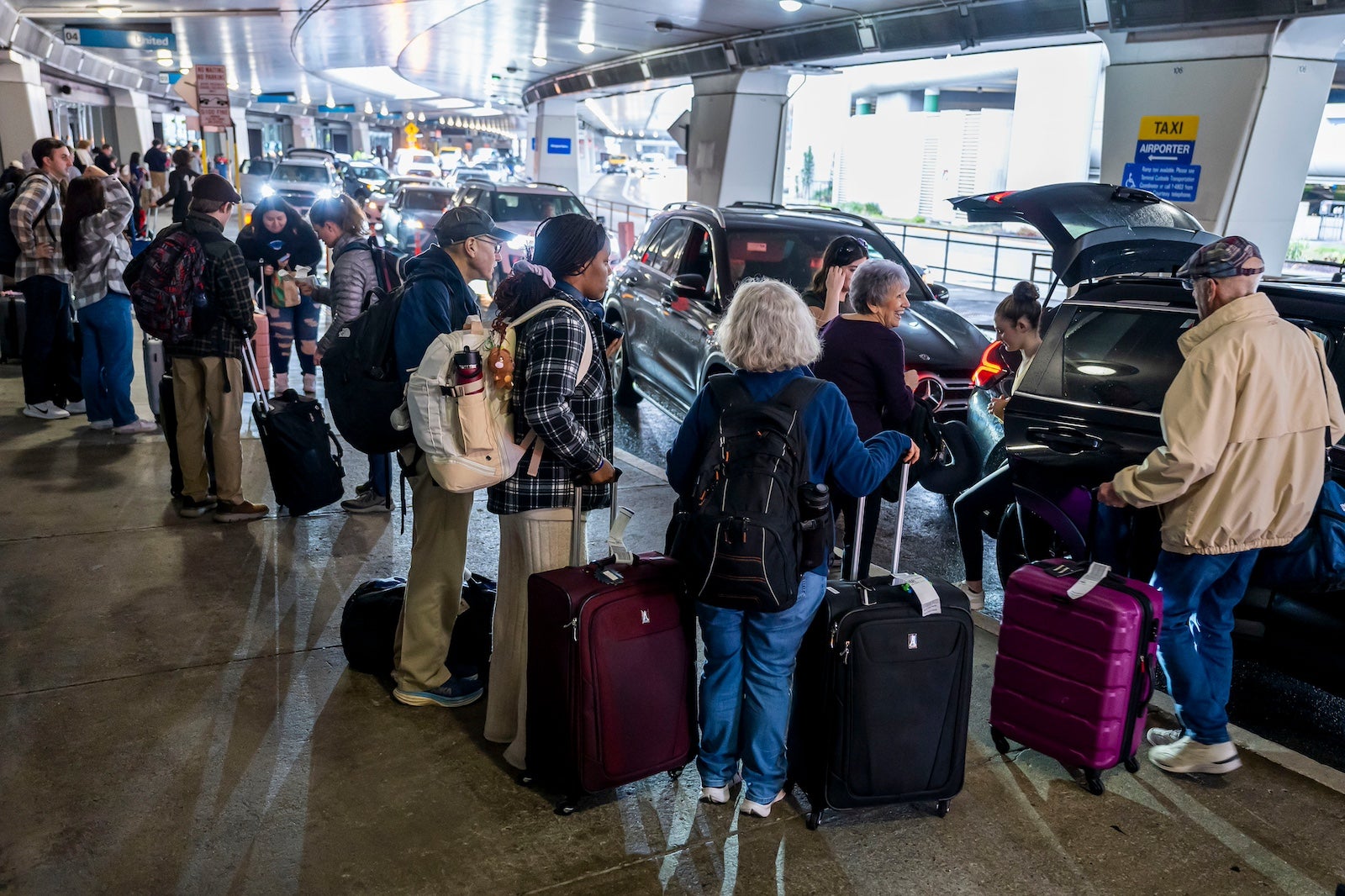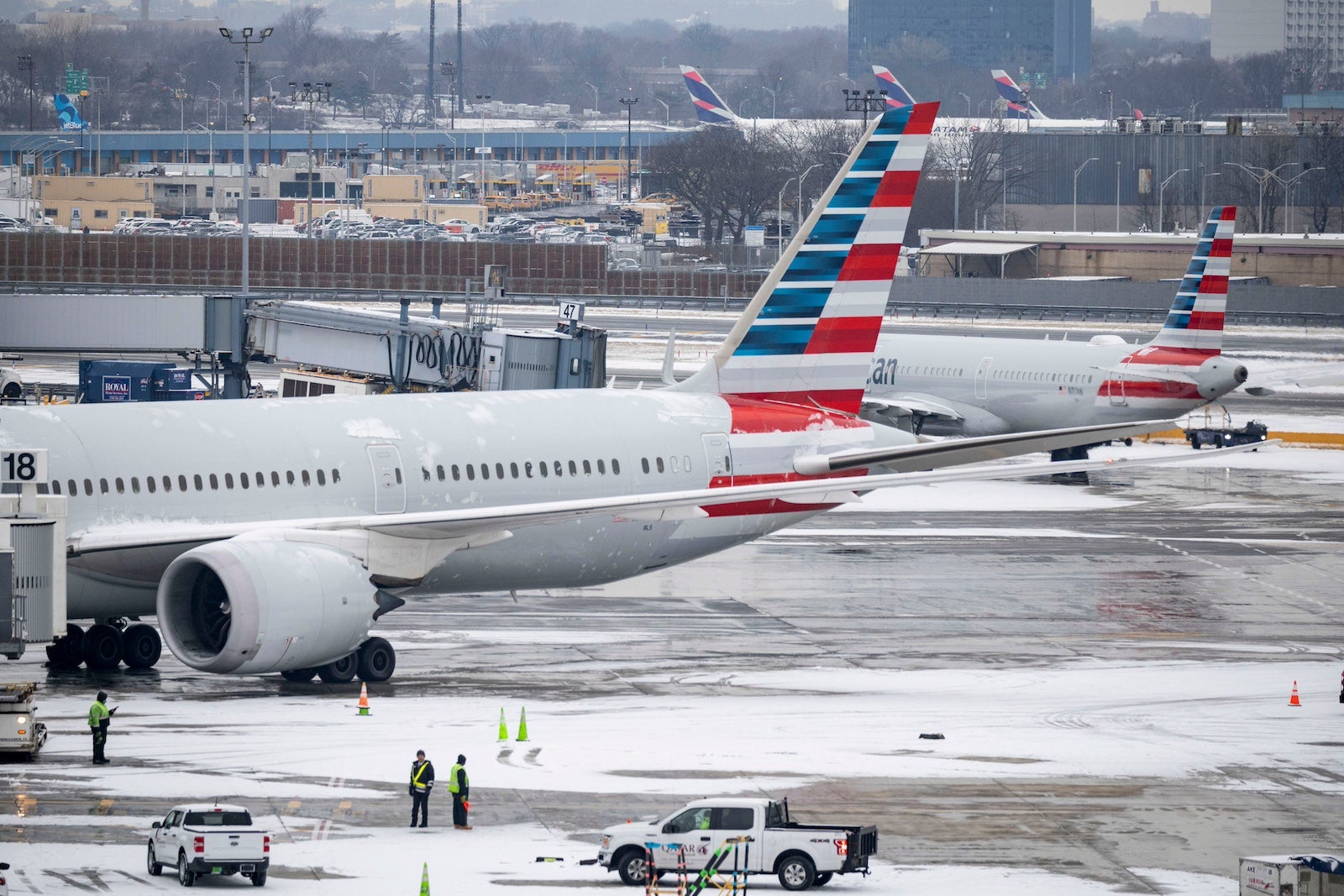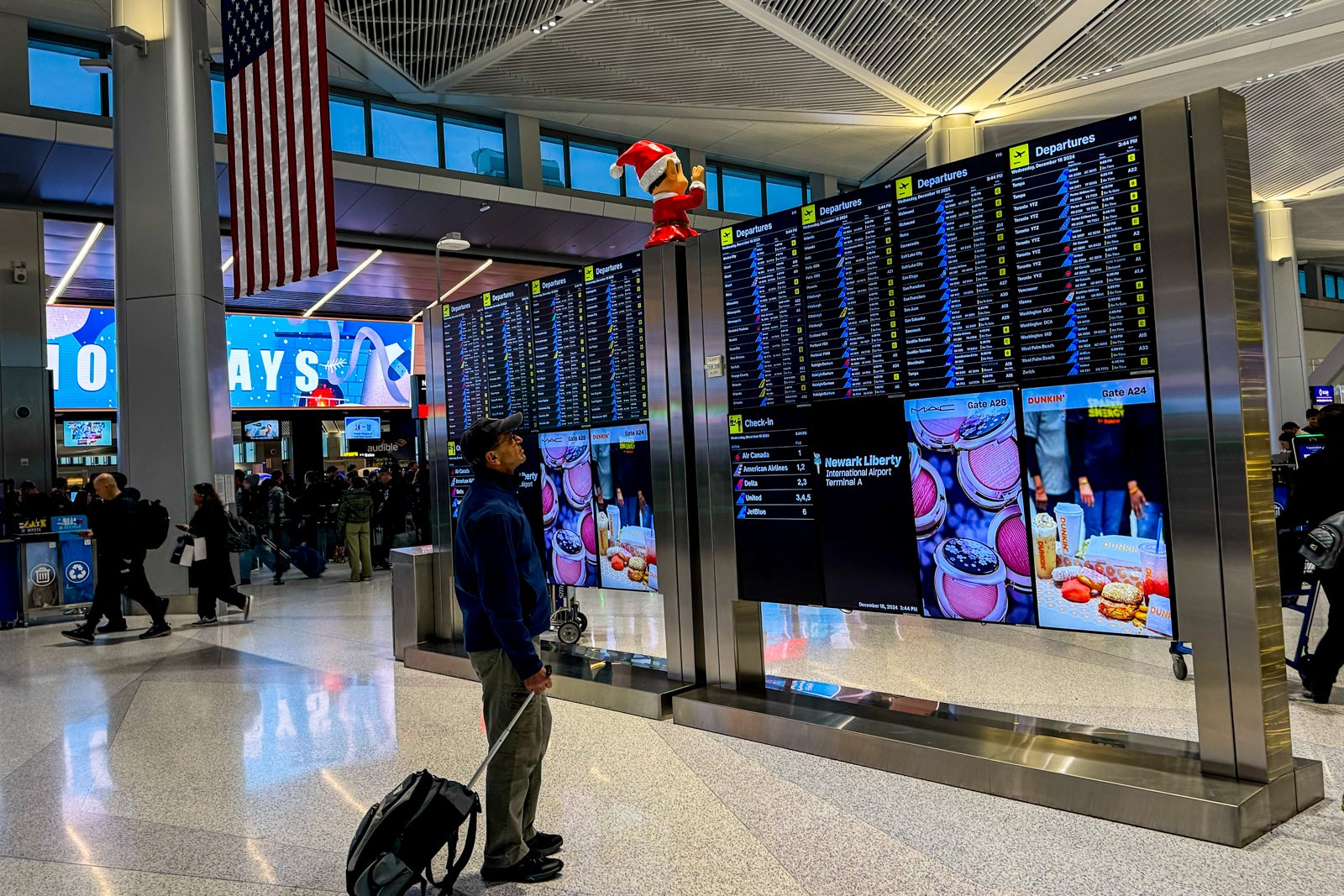This holiday season, severe thunderstorms have become a major obstacle for the millions of travelers heading to airports, overshadowing more typical concerns like snow or ice.
And additional complications may be on the horizon.
Challenging weather impacted air traffic on Thursday at Dallas Fort Worth International Airport (DFW), the second busiest airport in the U.S. This also resulted in increasing delays at Dallas Love Field Airport (DAL) and Houston’s George Bush Intercontinental Airport (IAH).
At DFW, nearly half of all departing flights were delayed on Thursday, with over 20% of flights being canceled as a slow-moving storm system caused multiple ground stops throughout the day.
What to do if your flight is canceled or delayed
American Airlines, which is based at DFW, felt the brunt of the severe weather, leading to more than 1,000 flight delays and over 300 cancellations on Thursday, as reported by FlightAware.
Southwest Airlines reported more than 1,600 delayed flights on Thursday, particularly in its Dallas and Houston hubs, while United Airlines, which operates at IAH, experienced over 1,000 delayed flights as well.
These disruptions occurred on a day that was anticipated to be one of the busiest travel days of the holiday season. The Transportation Security Administration screened over 2.7 million passengers on Thursday, and an even greater number is expected to pass through security on both Friday and Sunday.
With large crowds, inclement weather, and a technology outage at American on Christmas Eve, this week has been significantly more tumultuous for holiday travel compared to the relatively smooth Thanksgiving period.

Daily Newsletter
Stay updated with the Flying Frugal Daily newsletter
Join over 700,000 subscribers for breaking news, in-depth guides, and exclusive deals from Flying Frugal’s experts.
While American Airlines quickly addressed Tuesday’s third-party tech issue without grounding any mainline flights (although there were lingering delays), the severe weather on Christmas Eve and Thursday has complicated operations at its DFW hub this week.
As of Friday, operations for the airline — and for other carriers nationwide — appear to be generally returning to normal.
However, warnings from the National Weather Service indicate that conditions may deteriorate again this weekend. Potential severe storms are anticipated in parts of Louisiana, Arkansas, Mississippi, and Alabama on Saturday, and messy weather could affect travel on the East Coast later in the weekend.
“Sunday’s weather has the potential for the most significant impacts for travelers over the weekend, with major disruptions expected for East Coast traffic. Thunderstorms could disrupt heavily utilized air routes from Florida to Virginia,” stated NOAA national aviation meteorologist Wes Adkins.
In general, airlines have had a much more stable operational year compared to 2022, which was marked by numerous disruptions — particularly highlighted by the Southwest Airlines holiday operational crisis that year.
Airlines have consistently cited a two-decade high in staffing levels, along with other operational enhancements, as critical for getting their schedules back on track when issues arise.
However, as this week has demonstrated, unpredictable weather can significantly derail travel plans — affecting many of the over 20 million passengers who have already traveled through airports this holiday season.
With tens of millions more expected at airports between now and next weekend, here’s what you need to know if you’re traveling.
Understand Your Refund Rights
According to U.S. Department of Transportation regulations, if your flight is canceled or significantly delayed, and you opt not to travel, you are entitled to a refund for the unused portion of your trip, even if the disruption is due to weather.
However, be mindful that the “choose not to travel” clause is crucial: if you accept a rebooking or other accommodations, you may not be eligible for a refund.
If a flight disruption significantly affects your plans to the point that you’d prefer to stay where you are or choose a different mode of transportation (including flying with another airline), this refund option can be quite useful.
Read more: What to do next if your flight is canceled or delayed
Inquire About Food Vouchers and Other Compensation
Airlines offer various guarantees for meals, hotels, and ground transportation for stranded passengers. You can review these promises at FlightRights.gov.
However, these guarantees typically apply to “controllable” disruptions for which the airline is responsible. Generally speaking, bad weather does not fall under this category.
A Credit Card with Travel Insurance Can Be Beneficial
Having a credit card that includes travel insurance can assist you in covering unexpected expenses during flight disruptions. Just keep in mind that, generally, you must have booked the trip with that card to make a successful claim.
Read more: Top 10 credit cards with travel insurance for December 2024
Stay Updated via Your Airline’s App
Keep a close watch on your airline’s app, particularly if you anticipate delays or face issues.
Many airlines provide rebooking options through their apps, allowing you to modify your reservation easily instead of waiting in long lines or on hold by phone.
Related reading:


















